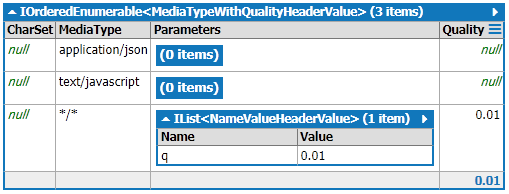Does anyone have any suggestions (or a regular expression) for parsing the HTTP Accept header?
I am trying to do some content-type negotiation in ASP.NET MVC. There doesn't seem to be a built in way (which is fine, because there are a lot of schools of thought here), but the parsing is not entirely trivial and I would rather not re-invent the wheel if someone has already done it well and is willing to share.

